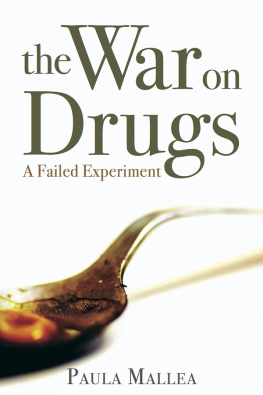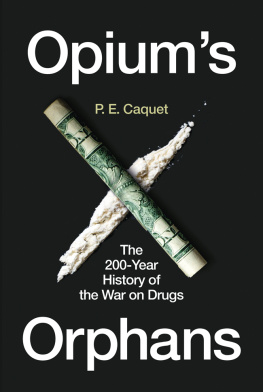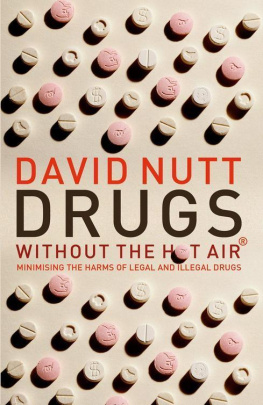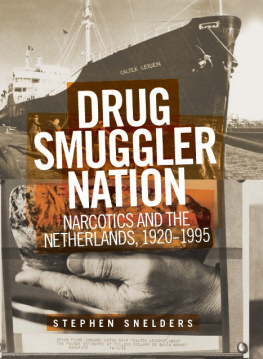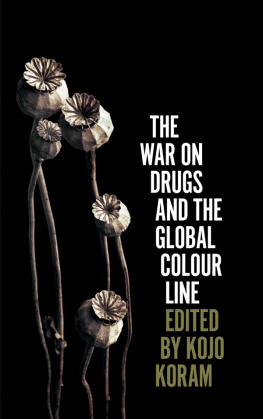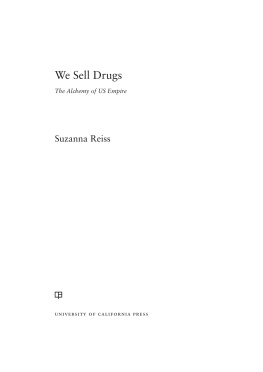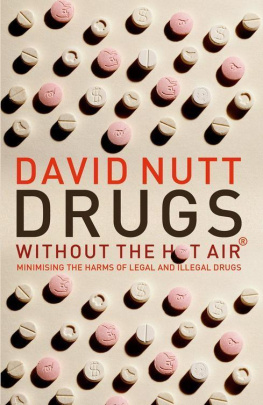Daniel Weimer - Seeing Drugs: Modernization, Counterinsurgency, and U.S. Narcotics Control in the Third World, 1969-1976
Here you can read online Daniel Weimer - Seeing Drugs: Modernization, Counterinsurgency, and U.S. Narcotics Control in the Third World, 1969-1976 full text of the book (entire story) in english for free. Download pdf and epub, get meaning, cover and reviews about this ebook. publisher: Kent State University Press, genre: Politics. Description of the work, (preface) as well as reviews are available. Best literature library LitArk.com created for fans of good reading and offers a wide selection of genres:
Romance novel
Science fiction
Adventure
Detective
Science
History
Home and family
Prose
Art
Politics
Computer
Non-fiction
Religion
Business
Children
Humor
Choose a favorite category and find really read worthwhile books. Enjoy immersion in the world of imagination, feel the emotions of the characters or learn something new for yourself, make an fascinating discovery.

- Book:Seeing Drugs: Modernization, Counterinsurgency, and U.S. Narcotics Control in the Third World, 1969-1976
- Author:
- Publisher:Kent State University Press
- Genre:
- Rating:5 / 5
- Favourites:Add to favourites
- Your mark:
Seeing Drugs: Modernization, Counterinsurgency, and U.S. Narcotics Control in the Third World, 1969-1976: summary, description and annotation
We offer to read an annotation, description, summary or preface (depends on what the author of the book "Seeing Drugs: Modernization, Counterinsurgency, and U.S. Narcotics Control in the Third World, 1969-1976" wrote himself). If you haven't found the necessary information about the book — write in the comments, we will try to find it.
A timely historical analysis of a persistent global problem
Since its declaration in the early 1970s, the American drug war has spanned the globe in a quest to stop the flow of illegal drugs into the United States. Explaining the conceptual framework within which policymakers understood illegal opium production and trafficking, Seeing Drugs examines the genesis of the war on drugs during the Nixon and Ford administrations when the United States developed the policies that set the parameters of subsequent American drug control abroad.
Faced with rising heroin use in the United States and the fear of drug-addicted Vietnam veterans carrying their affliction home and propelled by the belief that heroin addiction spreads like a contagious disease, U.S. officials identified three Third World nations--Thailand, Burma, and Mexico--as the primary sources of illegal narcotics servicing the American drug market. Author Daniel Weimer demonstrates that drug-control officials in these countries confronted a host of interlocking factors shaping the illicit narcotics trade and that, in response to these challenges, policymakers applied modernization and counterinsurgency theory to devise strategies to assist the Thai, Burmese, and Mexican governments in curbing drug trafficking. The Nixon and Ford administrations sincerely believed their policies could rein in the narcotics trade and diminish addiction within the United States. In the end, however, the drug war only guaranteed continued American intervention in the Third World, where the majority of illegal drug crops grew.
Through interdisciplinary and comparative analysis, Seeing Drugs examines the contours of the burgeoning drug war, the cultural significance of drugs and addiction, and their links to the formation of national identity within the United States, Thailand, Burma, and Mexico. By highlighting the prevalence of modernization and counterinsurgency discourse within drug-control policy, Weimer reveals an unexplored and important facet of the history of U.S-Third World interaction.
Essential reading for anyone interested in both the history of U.S. drug policy and the process of modernization during the Cold War. - William O. Walker III, author of Drug Control in the Americas and Opium and Foreign Policy
Seeing Drugs explores the dramatic effects of post-1945 U.S. modernization and counterinsurgency efforts, joined with Cold War imperatives, on the United States war on drugs. The war on drugs was carried by American dollars, social scientists, officials, and technology into the poppy fields of Mexico, Thailand and Burma. Dan Weimer deftly demonstrates the layered ways in which beliefs about drugs as threat and symbol of antimodernism prompted Americans to forcibly transform drug-growing areas, sometimes with support from indigenous elites. His story, based on impressive research and capacious understanding of theory, reveals both the contradictions in the United States war on drugs as well as many reasons for its devastating effects. This work joins much of the most exciting new work in U.S. foreign relations, in taking serious interest in the transformative consequences of U.S. foreign policy for other nations. Seeing Drugs joins Al McCoys classic Politics of Heroin as a must read for understanding the United States war on drugs. - Anne L. Foster, author of Projections of Power: The United States and Europe in Colonial Southeast Asia, 1919-1941
Weimer persuasively demonstrates that discourses of modernization and counterinsurgency helped to shape both U.S. counter-narcotics policy abroad and domestic drug policy at home along coercive lines. An important and timely book with much to teach us about the contradictions of the war on drugs in Afghanistan, Colombia, and elsewhere. - Brad Simpson, Princeton University
Daniel Weimer: author's other books
Who wrote Seeing Drugs: Modernization, Counterinsurgency, and U.S. Narcotics Control in the Third World, 1969-1976? Find out the surname, the name of the author of the book and a list of all author's works by series.

